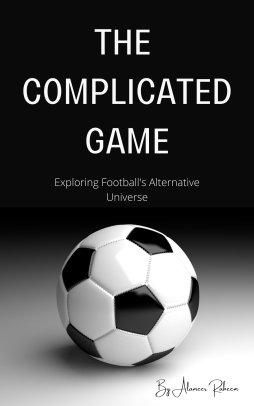
Football is a game of dreams, glory, and defining moments. Some goals etch a player’s name into history, bringing them everlasting fame. But what if scoring a legendary goal actually ruins your career?
This is exactly what happened to Mario Götze and André Schürrle, two German stars who combined for the 2014 FIFA World Cup-winning goal. Their careers were never the same after that night in Brazil.
Is there a World Cup curse that affects certain players after reaching the pinnacle of football? Let’s dive into this fascinating phenomenon.
The Night That Changed Everything
It was July 13, 2014, in Rio de Janeiro. Germany faced Argentina in the World Cup final, a tense match filled with near misses. Gonzalo Higuaín, Lionel Messi, and Rodrigo Palacio all had golden chances to win it for Argentina, but somehow, they failed to convert.
Then, in extra time, André Schürrle sprinted down the left flank, delivering a perfect cross into the box. Mario Götze, with a moment of pure genius, controlled the ball on his chest and volleyed it past Argentina’s goalkeeper. Germany were champions!
At that moment, Götze and Schürrle became national heroes. Their names would forever be linked to one of Germany’s greatest footballing triumphs.
But what seemed like the beginning of legendary careers turned out to be their peak.
The Fall of Mario Götze
After his World Cup heroics, Götze returned to Bayern Munich, where he had already spent a season. However, things quickly went south. Pep Guardiola struggled to find the right position for him, and despite being a technically gifted player, Götze couldn’t secure a regular spot in the lineup.
By the 2015-16 season, he was reduced to a bench player. Eventually, he moved back to Borussia Dortmund, but injuries and a mysterious metabolic disorder further derailed his progress. The once-promising star, who had been told by Germany coach Joachim Löw to "prove he was better than Messi," was now struggling to even get into the starting XI.
Fast forward to today, Götze plays for Eintracht Frankfurt, a solid club but far from the heights he was expected to reach. His career didn’t collapse completely, but it fell far short of expectations.
The More Mysterious Decline of André Schürrle
Schürrle’s decline was even more dramatic. Before the 2014 World Cup, he was a rising star. Chelsea had signed him in 2013, and he was seen as a player with immense potential. But after that night in Rio, his career took an unexpected downward spiral.
In the 2014-15 season, Schürrle struggled for game time at Chelsea and was sold to Wolfsburg in January 2015. Although he had some decent performances, he never truly regained his pre-World Cup form.
A move to Borussia Dortmund followed, but it was another disappointment. He was loaned out to Fulham and Spartak Moscow, where he was barely noticeable. Then, at just 29 years old, he shocked the football world by announcing his retirement.
His explanation? Football no longer made him happy. The joy was gone, the pressure was too much, and he simply walked away from the sport that had once made him famous.
Was It Just Pressure, or a Real Curse?
Many theories attempt to explain what happened to Götze and Schürrle.
1- The Pressure of Expectations
After scoring the biggest goal in German football history, both players were expected to perform at an elite level every game. Every missed chance, every bad pass, and every poor performance was magnified. The psychological burden may have been too much to handle.
2- The "Completed the Game" Effect
Some say that winning the World Cup at such a young age can kill a player's hunger. For many, the World Cup is the ultimate dream. Once you achieve it, what’s left to fight for?
3- The Physical and Mental Toll
Both Götze and Schürrle suffered multiple injuries after 2014. Some experts suggest that stress and anxiety increase the risk of injuries. The pressure they faced may have contributed to their frequent setbacks.
4- The "World Cup Curse"
Many players have seen their careers fade after a successful World Cup.
- Samuel Umtiti and Paul Pogba (France, 2018) – Both struggled with injuries and form after winning.
- David Villa (Spain, 2010) – Had one great season after the World Cup but then faded.
- Fabio Cannavaro (Italy, 2006) – Never reached his 2006 form again.
- Rivaldo (Brazil, 2002) – His career declined rapidly after winning.
Is there really a curse, or is it just that some players peak at the World Cup and then naturally decline?
Final Thoughts: A Football Mystery
Football is unpredictable. One day, you’re at the top of the world, and the next, you’re forgotten. The cases of Götze and Schürrle prove that sometimes, achieving greatness too soon can be more of a burden than a blessing.
Their careers remind us that football isn’t just about talent—it’s about mentality, resilience, and handling expectations. Some players thrive under pressure, while others struggle to find motivation after reaching the pinnacle.
So, was the 2014 World Cup-winning goal a blessing or a curse? The answer depends on how you look at it. Germany won, but Götze and Schürrle lost.